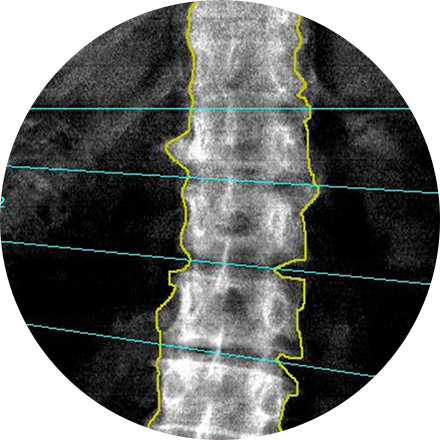
What is Bone Density Scan?
A dual-energy X-ray absorptiometry (DEXA) scan measures the density and mineral content in bone, most often in the hip or lower spine. It is the most accurate method of determining bone density and potential problems related to bone loss.
When is it used?
Osteoporosis resulting in bone fractures is responsible for thousands of injuries in the elderly that require long-term care confinement. Osteoporosis, or bone loss, is commonly associated with post-menopausal women. However, it can also affect men. Therefore, it is important for everyone with risk factors—such as being post-menopausal without estrogen supplementation, patients who are smoking or have smoked, and those individuals taking certain medications such as Prednisone or other steroids, and other factors—to have a DEXA scan.
What happens during the procedure?
The 30-minute procedure is simple and painless. Depending on whether your hip, spine, or wrist is being scanned, you will either lie on a table or sit in a chair. You may lie with your legs straight or with your lower legs resting on a platform to elevate them slightly. You will be able to communicate with thetechnologist during the procedure.
What are the benefits and risks?
A DEXA scan is painless and non-invasive, with very little exposure to radiation—less than one-tenth of what is used in a chest X-ray.
At our facilities, we have DEXA scanning equipment with the latest software for the most accurate diagnosis. This enhanced form of X-ray is more accurate than a plain X-ray test and provides the only way to accurately diagnose and monitor a patient with significant bone loss. This test is a valuable tool for diagnosing osteoporosis, which often has no symptoms until you suffer a fracture. A Bone Density scan can diagnose the disease at its earliest stages, which means you can begin receiving treatment to protect your bones sooner.
